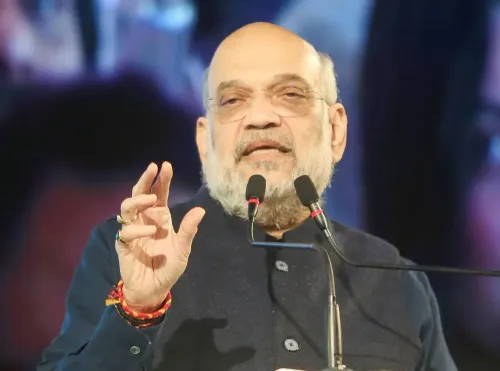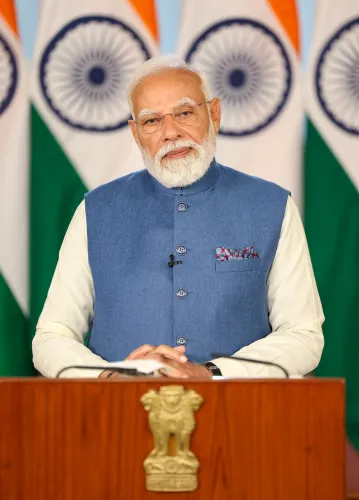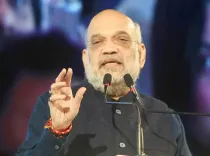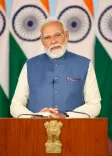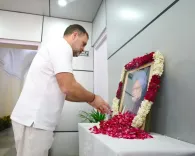Why Did Congress Expel Laxman Singh for Speaking the Truth?
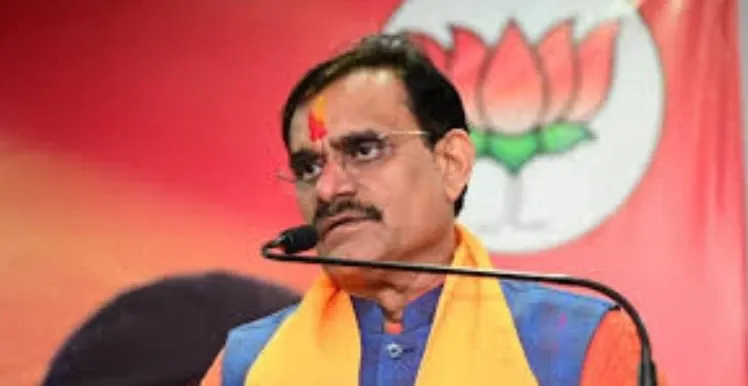
Synopsis
Key Takeaways
- Laxman Singh was expelled from Congress for speaking out against party leadership.
- The expulsion reflects ongoing tensions within the party regarding dissent.
- Sharma's remarks highlight concerns about freedom of expression in politics.
- The incident raises questions about the treatment of internal critics.
- The historical influence of the Raghogarh princely state in Madhya Pradesh politics remains significant.
Bhopal, June 12 (NationPress) The Chief of the Madhya Pradesh Bharatiya Janata Party, V.D. Sharma, declared that former Congress MLA Laxman Singh faced disciplinary action for his audacity to speak the truth, an act that was not well-received by the "sycophants" surrounding Rahul Gandhi, the Leader of the Opposition in the Lok Sabha.
Sharma asserted that while Congress claims to promote freedom of expression among its members, the reality contradicts this notion. The expulsion of Laxman Singh exemplifies this hypocrisy.
These comments were made in reaction to Congress’s decision to remove Laxman Singh, who is also the younger brother of former Madhya Pradesh Chief Minister Digvijaya Singh, citing repeated instances of anti-party activities.
Sharma stated, "By expelling Laxman Singh, Congress has clearly indicated to its members that anyone daring to speak the truth will be dismissed. The party seeks followers, not leaders who voice their opinions."
The Congress Disciplinary Committee expelled Laxman Singh for a duration of six years due to his ongoing anti-party conduct.
This decision came shortly after Rahul Gandhi's visit to Bhopal on June 3, where he emphasized that individuals creating obstacles should step aside voluntarily or face expulsion.
On April 25, Laxman Singh publicly criticized party leadership in the wake of the Pahalgam terror attack, stating, "Rahul Gandhi and Robert Vadra are naive. The country is suffering the consequences of their immaturity."
Moreover, on the same day, he accused Jammu and Kashmir Chief Minister Omar Abdullah of colluding with terrorists.
In response to his remarks, the Congress Disciplinary Action Committee issued him a show cause notice on May 9, demanding an explanation within ten days.
The notice, from member secretary Tariq Anwar, stated, "A complaint has been received regarding your public statements, which have severely damaged the Congress's image and dignity."
It further noted that his recent comments had crossed acceptable limits, particularly the derogatory remarks aimed at senior party leadership, including Rahul Gandhi.
Defiant, Laxman Singh challenged Congress to expel him immediately if they found his comments unacceptable.
His response, however, was deemed unsatisfactory, leading the party's disciplinary wing to recommend his removal.
With approval from the Congress high command, Tariq Anwar officially announced Laxman Singh's expulsion on Tuesday.
The Raghogarh princely state has historically held significant influence in Madhya Pradesh politics, with Digvijaya Singh having served as Chief Minister before transitioning to the Rajya Sabha.
His son, Jaivardhan Singh, currently represents Raghogarh in the State Assembly, while Laxman Singh has held positions as both a Member of Parliament and a legislator from Chachauda.
Despite his political background, he is often viewed as having received less recognition compared to Digvijaya Singh's close family.
He also had a brief association with the BJP.
Tensions escalated in 2018 when Congress regained power in Madhya Pradesh after a 15-year hiatus.
Laxman Singh expected a ministerial role due to his seniority but was overlooked in favor of Digvijaya Singh's son, Jaivardhan Singh.
Although he refrained from openly dissenting at the time, he has continued to voice his grievances sporadically.


